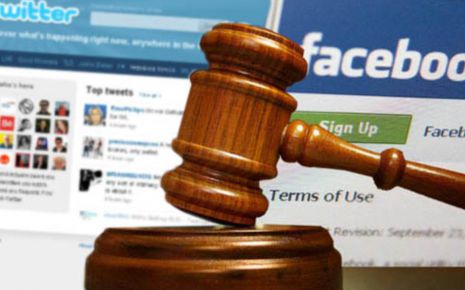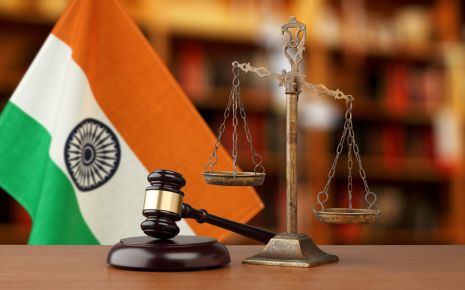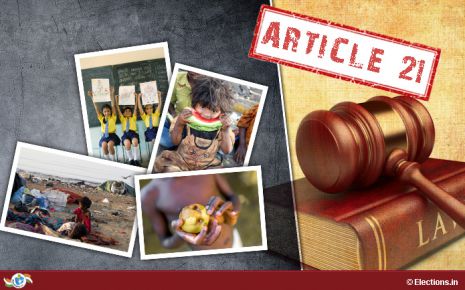The Scope Of Permissible Amendments At The Stage Of Judgement
In the case at hand , an application for amendment was permitted even as the
judgment was about to be pronounced, pursuant to an application under Order 12
Rule 6 of the CPC. This decision was anchored in the understanding that Order VI
Rule 17 of the CPC confers upon parties the right to amend their pleadings "at
any stage of the proceedings." Unlike Order IX Rule 7, which pertains
specifically to the hearing stage, Rule 17's scope spans the entirety of the
proceedings, affording litigants the leeway to rectify, alter, or supplement
their pleadings in response to evolving circumstances or newly discovered
evidence.
At any stage of the proceedings:
The phrase "at any stage of the proceedings" warrants careful examination to discern its implications. Judicial interpretation has expansively construed this provision, acknowledging that the term "stage" encompasses not only the pre-trial phase but also extends to subsequent stages, including judgment pronouncement and even the appellate process. This interpretation aligns with the objective of ensuring a fair and thorough resolution of disputes by enabling parties to refine their claims or defenses in light of evolving legal and factual complexities.
Furthermore, Order VI Rule 17 imposes a threshold requirement of due diligence on parties seeking to amend their pleadings, especially if sought after trial commencement. The court retains discretion to evaluate whether the applicant has diligently pursued the amendment and whether its allowance would prejudice the opposing party or compromise judicial integrity.
The scope of permissible amendments:
The scope of permissible amendments under Order VI Rule 17 is expansive yet circumscribed. While parties enjoy latitude in revising their pleadings to clarify or bolster their assertions, amendments must adhere to certain criteria. They should be relevant to the suit's subject matter, consistent with existing pleadings, and aimed at furthering the interests of justice. Frivolous or vexatious amendments, intended solely to cause delay or harassment, are unlikely to be sanctioned by the court.
Implications:
The court's discretion to allow or disallow amendments entails a delicate balancing act of competing interests, including the imperative of prompt resolution, the principle of litigation finality, and parties' right to effectively present their case. Courts are guided by principles of equity and fairness in wielding this discretion, striving to strike a judicious balance between the parties' interests and the overarching objective of upholding the rule of law.
The Case Discussed:
Case Title: B.D.R Developers Pvt. Ltd. Vs Narsingh Shah
Judgment/Order Date: 03.08.2021
Case No:CM M 412 of 2020
Neutral Citation: NA
Name of Court: Delhi High Court
Name of Hon'ble Judge: Asha Menon,H.J.
Disclaimer:
Ideas, thoughts, views, information, discussions and interpretation expressed herein are being shared in the public Interest. Readers' discretion is advised as these are subject to my subjectivity and may contain human errors in perception, interpretation and presentation of the fact and issue involved herein.
Written By: Advocate Ajay Amitabh Suman, IP Adjutor - Patent and Trademark Attorney
Email: [email protected], Ph no: 9990389539
At any stage of the proceedings:
The phrase "at any stage of the proceedings" warrants careful examination to discern its implications. Judicial interpretation has expansively construed this provision, acknowledging that the term "stage" encompasses not only the pre-trial phase but also extends to subsequent stages, including judgment pronouncement and even the appellate process. This interpretation aligns with the objective of ensuring a fair and thorough resolution of disputes by enabling parties to refine their claims or defenses in light of evolving legal and factual complexities.
Furthermore, Order VI Rule 17 imposes a threshold requirement of due diligence on parties seeking to amend their pleadings, especially if sought after trial commencement. The court retains discretion to evaluate whether the applicant has diligently pursued the amendment and whether its allowance would prejudice the opposing party or compromise judicial integrity.
The scope of permissible amendments:
The scope of permissible amendments under Order VI Rule 17 is expansive yet circumscribed. While parties enjoy latitude in revising their pleadings to clarify or bolster their assertions, amendments must adhere to certain criteria. They should be relevant to the suit's subject matter, consistent with existing pleadings, and aimed at furthering the interests of justice. Frivolous or vexatious amendments, intended solely to cause delay or harassment, are unlikely to be sanctioned by the court.
Implications:
The court's discretion to allow or disallow amendments entails a delicate balancing act of competing interests, including the imperative of prompt resolution, the principle of litigation finality, and parties' right to effectively present their case. Courts are guided by principles of equity and fairness in wielding this discretion, striving to strike a judicious balance between the parties' interests and the overarching objective of upholding the rule of law.
The Case Discussed:
Case Title: B.D.R Developers Pvt. Ltd. Vs Narsingh Shah
Judgment/Order Date: 03.08.2021
Case No:CM M 412 of 2020
Neutral Citation: NA
Name of Court: Delhi High Court
Name of Hon'ble Judge: Asha Menon,H.J.
Disclaimer:
Ideas, thoughts, views, information, discussions and interpretation expressed herein are being shared in the public Interest. Readers' discretion is advised as these are subject to my subjectivity and may contain human errors in perception, interpretation and presentation of the fact and issue involved herein.
Written By: Advocate Ajay Amitabh Suman, IP Adjutor - Patent and Trademark Attorney
Email: [email protected], Ph no: 9990389539
Law Article in India
Legal Question & Answers
Lawyers in India - Search By City
LawArticles
How To File For Mutual Divorce In Delhi

How To File For Mutual Divorce In Delhi Mutual Consent Divorce is the Simplest Way to Obtain a D...
Increased Age For Girls Marriage

It is hoped that the Prohibition of Child Marriage (Amendment) Bill, 2021, which intends to inc...
Facade of Social Media

One may very easily get absorbed in the lives of others as one scrolls through a Facebook news ...
Section 482 CrPc - Quashing Of FIR: Guid...

The Inherent power under Section 482 in The Code Of Criminal Procedure, 1973 (37th Chapter of t...
The Uniform Civil Code (UCC) in India: A...

The Uniform Civil Code (UCC) is a concept that proposes the unification of personal laws across...
Role Of Artificial Intelligence In Legal...

Artificial intelligence (AI) is revolutionizing various sectors of the economy, and the legal i...








Please Drop Your Comments